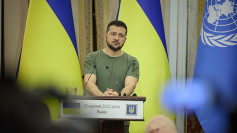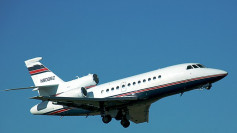Russian President Vladimir Putin approved on Monday a provision in Moscow's nuclear deterrent policy. There are several endorsements in the doctrine but the most controversial is his approval of atomic weapons use even against attacks that are non-nuclear in its nature.
The document says that Russia can use its nuclear weapons based on "reliable information" alone that an enemy launches ballistic missiles against the country's territories or even its allies. The document also entails that atomic weapons could be used in instances where there is an "enemy impact on critically important government or military facilities of the Russian Federation, the incapacitation of which could result in the failure of retaliatory action of nuclear forces."
The whole of the new document suggests Russia is ready to retaliate using its nuclear stockpile in response to all forms of attacks and aggressions that threaten the very existence of the state. It will retaliate even when the attack uses conventional weapons.
Observers believed that the reference to a non-nuclear attack may have something to do with the longtime conflict between Russia and the United States. By including a non-nuclear attack as a mere basis for an atomic weapon retaliation, observers think that Russia is sending a strong warning against the U.S. The new doctrine could also mean that Russia is in possession of equally powerful military arsenal that is comparable to Washington.
Putin's new nuclear deterrent policy follows talks between the US and Russia on a new nuclear arms control arrangement. In mid-May, the two countries agreed to hold in-person dialogues, discussing possible new arms treaty. The agreement, however, entails that discussions should take place once the COVID-19 pandemic subsides. Present in the nascent talks is US arms control envoy Marshall Billingslea and Russian Deputy Foreign Minister Sergei Ryabkov.
Ahead of the meeting last month, the two countries have expressed willingness to include their respective nuclear weapons stockpile under the existing arms control pact. However, such inclusions will only happen if the US agrees to extend the existing arms treaty which is set to expire in February 2021.
There have been fears among arms control advocates and lawmakers that US President Donald Trump has plans to forego the 2010 New STARt arms control treaty by allowing it to expire naturally. When this happens, both Russia and the US will have no limits in their use of respective nuclear weapons.
Observers are also looking at the possibility that the US is pawning Russia to convince China to enter the new arms treaty. Billingslea hinted in one event that Trump plans to establish a trilateral arms control agreement under which China, Russia, and the US will all participate.






